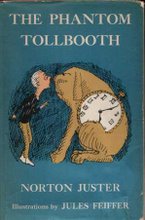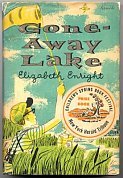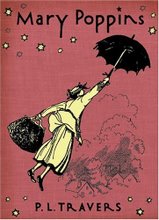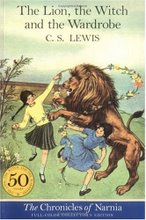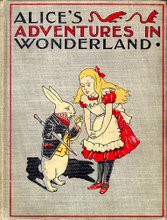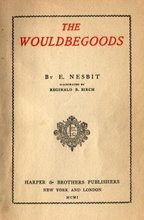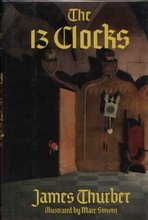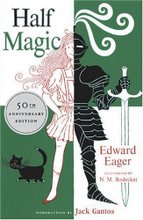
It had to happen sooner or later (inane spouting and rambling about how I love
Edward Eager), so it might as well happen now...
After all, I'm re-reading a few of his books this week, as I begin tinkering with the first hundred pages of my next novel. I need it, a good dose of Eager. Regularly.
There are many levels on which Eager was a complete and total genius. Many. And I'd happily debate (or maybe pop) just about anyone who dares to disagree with me... but the particular flavor of genius that interests me tonight is best summed up by the author himself.
Or rather... by Barnaby, a character from
Seven Day Magic:
The best kind of magic book... is the kind where the magic has rules. And you have to deal with it and thwart it before it thwarts you. Only sometimes you forget and get thwarted. (Oh, and DIBS on this quote. *I'm* using it, and if you steal it I'll come and short-sheet you or something.)
But hmmmmm.... rules... Barnaby was a wise wise boy.
You should all, ALL OF YOU (and me too of course), think about rules often, if you happen to be writing books about magic and children. Lest you be thwarted.
See, magic is dangerous. Because it removes certain limitations from a book. It frees an author of many restrictions. And restrictions are so important when you're writing.
How?
Let's say you've written your character (Jimbo) into a dark cave full of wild snarling beasts, and you are NOT writing a magic book. Well, now you have to draw on the objects and traits and characters and themes already at work in the book, to get poor Jimbo free. What resources does Jimbo have? What other characters might have been introduced earlier on, who might now fly to Jimbo's aid? Is there a father he fought with earlier in the day, who has come looking for him to apologize? Does Jimbo have an amazing gift with animals> You'll have to turn to the book's logic to free Jimbo. And so the book will hang together.
But if you are writing a magic book, and Jimbo has a wishing talisman, and the wishing talisman has no real rules to it... Or Jimbo's best friend is a fairy who comes whenever he calls and has limitless powers... well, under those circumstances, Jimbo will simply wish himself free. Which is LAME if it happens every time he gets stuck. Like a series of identical trapdoors. LAME! Such a book will NOT hang together. It hasn't been knitted with anything.
Magic HAS to have a logic, and you have to understand it, if your book is to succeed in any real way. Edward Eager was the king of magical logic. Each of his amazing books operated on a different set of principles, and his characters all (while they have fun too) spend a lot of time figuring out their magic, and learning about themselves and the world in the process. Which is important.
Eager struck an incredible balance between fantasy and reality. Something we all need. All of us. In our books and in our lives. You have to earn your wishes, your pleasures.
Lately, as I've been trying to read contemporary books, I've found myself a little disappointed at how many authors fail in this way. I won't name names (because I don't want to make enemies) but it seems like a lot of people just send in an amazing magical cavalry when they feel like it. Characters "discover" new powers in the nick of time.
Or worse, authors create a world in which a magic cavalry is possible or such discoveries are commonplace... and then they DON'T use these devices now and then... for no particular reason... just so they can build some tension, create a jam for Jimbo.
Which is just really really stupid. Because no matter how dumb Jimbo is, he's not THAT dumb. If he's got a magical all-powerful talisman, you can bet your sweet patooty he's keeping it with him.
Ach, okay... I haven't talked much about Eager in detail, but (now I have to run to the baby, who needs some boiled carrots and string cheese ASAP! and) suffice it to say he's a genius. His characters are smart without ever being irritating. He's literate and literary without ever seeming like a snob. And while the books are all set in the past, they don't feel dated, because the kids are so REAL.
Read the man, if you haven't already (though how you grew up without him I cannot comprehend.
Start with
Half Magic and go from there.
(OH! I should also mention that the
illustrator of these books is one of my three all-time favorite illustrators. ALL TIME!)












